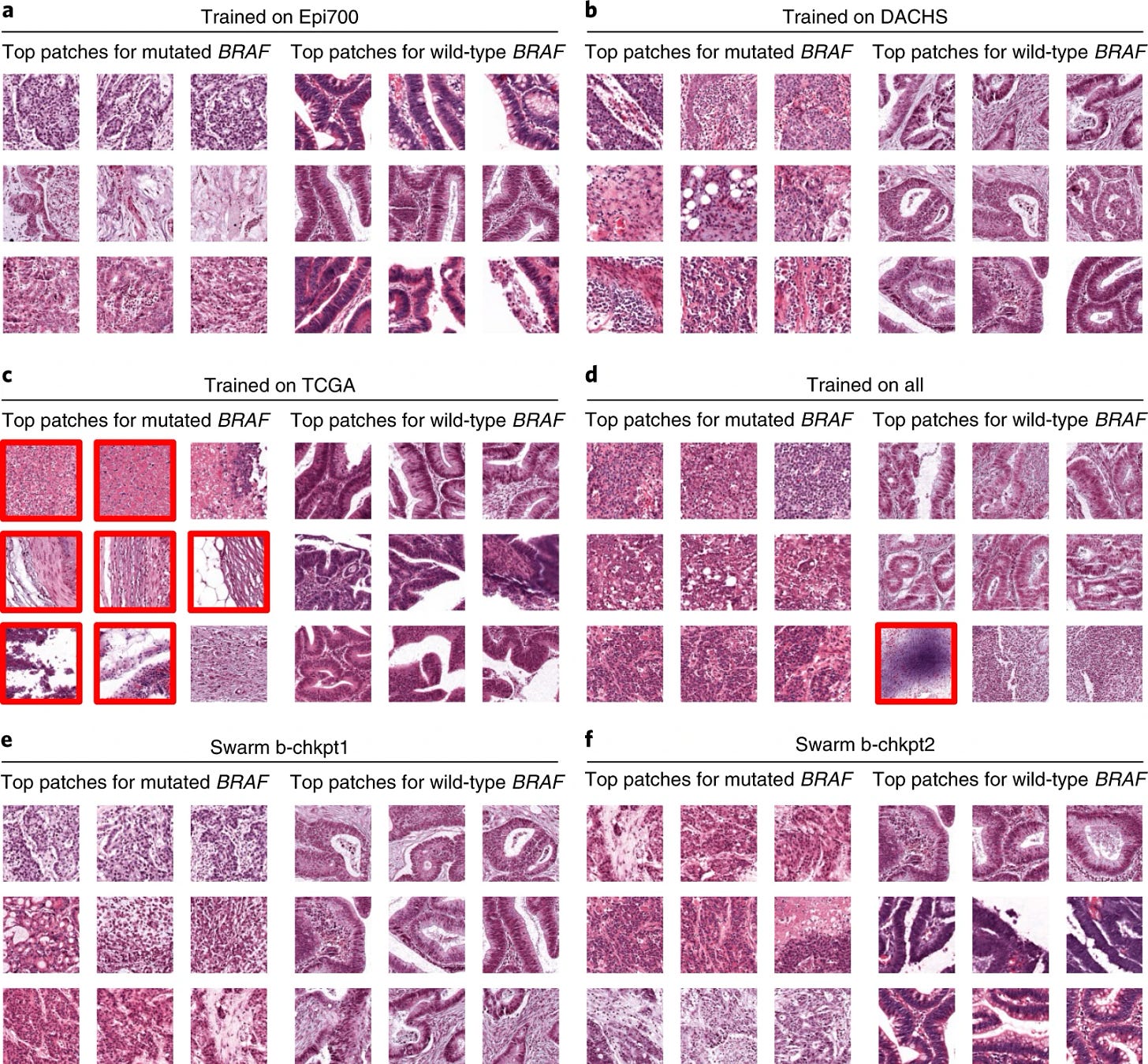Decentralized Swarm Learning
An IRL Blockchain Use Case to Facilitate Collaboration & Decentralize Control
To be honest, I am not sure how “big” of a deal this really is.
After reading a recent paper published in Nature Medicine, “Swarm learning for decentralized artificial intelligence in cancer histopathology”, and thinking about the variety of potential use cases, I think this example of using blockchain in real life for image analysis is pretty compelling. The paper was based on a multicenter study in which institutions were training artificial intelligence algorithms to analyze molecular alterations on tissue images to better detect cancer.
To all of the blockchain naysayers, it’s quite possible that for this use case, multicenter sharing of patient data without concentrating the control of the data to a single entity, could be accomplished using some alternative technology.
That said, there are problems with the state of the art when it comes to sharing sensitive medical data across countries and institutions. Although AI models can be trained independently, to participate, data must be shared in a central repository. This shared data between institutions may result in patients giving up control of their own data.
Up until now, this problem has been solved by Federated learning, in which AI models are trained across multiple (decentralized) servers where local data samples are stored. Each server in the network does not share input data with the others, they only share the AI model weighting schema. However, according to the Nature Medicine article, “a central coordinator governs the learning progress based on all trained models, monopolizing control and commercial exploitation.”
Swarm Learning solves this control issue by combining models centrally without requiring central coordination. Thus all study contributors participate at the same level. Essentially, Swarm learning eliminates the central coordinator.
“By using blockchain-based coordination between peers, SL[Swarm Learning] removes the centralization of FL [Federated learning] and raises all contributors to the same level. In the context of healthcare data analysis, SL leads to equality in training multicentric AI models and creates strong incentives to collaborate without concentrating data or models in one place. This could potentially facilitate collaboration among several parties, hence generating more powerful and more reliable AI systems. Ultimately, SL could improve the quality, robustness and resilience of AI in healthcare.”
This use case exemplifies some of the key promises of blockchain technology, to equalize access (level the playing field), reduce systemic inefficiency, and protect privacy.
Special shout out to @arigoldnfts for tweeting out this paper, and @laurashin for bringing @arigoldnfts to my attention.



